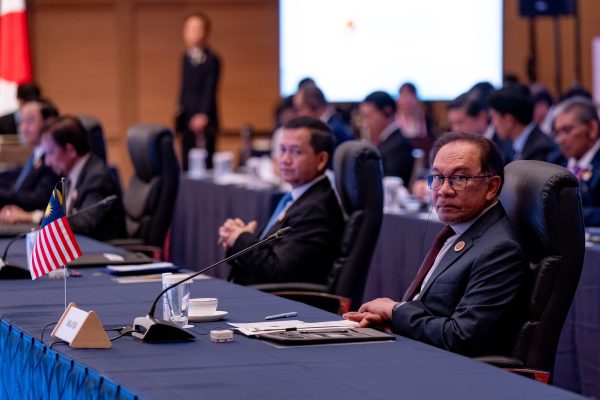
Recapping the First Year of Malaysia's Foreign Policy Under Anwar Ibrahim
['Anwar', 'Malaysia', 'policy', 'foreign', 'relations']
The Malaysian leader has increased his country's diplomatic focus on ASEAN and the Middle East, while balancing between the major powers.
Recapping the First Year of Malaysia's Foreign Policy Under Anwar Ibrahim
Last November, Anwar Ibrahim was elected as Malaysia's 10th prime minister, at a turbulent time both domestically and internationally. During his first year in office, Anwar has made trips to Turkey, Egypt, the UAE, and Saudi Arabia, as well as attended forums including the emergency Organization of Islamic Cooperation meeting and the ASEAN-Gulf Cooperation Council summit, both of which were held in October of this year. The third major focus of Anwar's foreign policy involves Malaysia's relations with the major powers, specifically the United States and China. In his maiden press conference, Anwar emphasized that Malaysia would remain non-aligned and would not risk getting entangled in major power rivalry. The last senior U.S. official to visit Malaysia was Secretary of State Antony Blinken in December 2021, one year before Anwar's government took office. Third, the increased focus on championing human rights reflects the moral character of the nation that Anwar hopes to build, synergizing with the concept of Malaysia Madani's "Civil nation." To be a relevant power will also require Anwar to lead a foreign policy that is proactive, one which takes on a more significant role in international affairs.